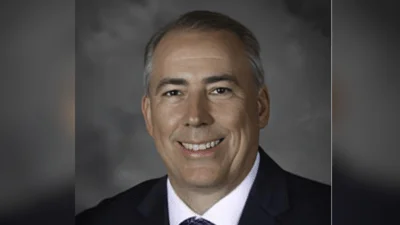Gov. Gretchen Whitmer | Photo Courtesy of Michigan
Gov. Gretchen Whitmer | Photo Courtesy of Michigan
The Michigan Supreme Court ruled in October that Gov. Gretchen Whitmer had imposed unlawful and unconstitutional pandemic-related executive orders.
Theories began to run rampant on social media and political leaders were vocal about the Supreme Court decision being linked to COVID-19 cases and deaths, but this has since been proven false.
Ryan Cummings, WXMI-TV anchor in Grand Rapids, posted on Twitter, "Forty-one days ago, the Michigan Supreme Court ruled against Gov. Whitmer and her executive orders related to COVID. There were 126,358 confirmed cases on that day for the entire year. We are now at 236,225. Nearly double since the ruling," according to Michigan Capitol Confidential.
University of Michigan Regent Jordan Acker tweeted, calling the justices who ruled against the governor "stooges." Whitmer also responded to the decision. “Every state and the federal government have some form of declared emergency,” she told AP News. “With this decision, Michigan will become the sole outlier at a time when the Upper Peninsula is experiencing rates of COVID infection not seen in our state since April.”
COVID-19 cases were already increasing before the ruling. On Oct. 2 when the Supreme Court issued its ruling, the state of Michigan was averaging 99.2 new cases per day. On Sept. 9, the state was averaging 69.1 cases per day. This shows that the state was already experiencing a drastic increase in cases, according to data from Michigan Capitol Confidential.
Many polls have shown that the majority of Americans are in favor of wearing face masks to assist in slowing the spread of COVID-19. According to a OnePoll survey, 83% of Americans say they always wear a mask when in public, regardless of whether it is enforced by the law. In the state of Michigan, 84% of residents would wear a face mask in public whether it's enforced or not, which is up from 72% in September.
Whitmer's executive orders were still in effect for another 21 days after the Supreme Court ruling. Three days after the ruling, the Michigan Department of Health and Human Services (MDHHS) enforced a 1978 law, which essentially put many of Whitmer's executive orders back into effect.
If the Michigan Supreme Court decision had led to a spike in local cases, the state would have witnessed more cases than its neighboring Midwestern states, which didn't happen, according to Michigan Capitol Confidential.


 Alerts Sign-up
Alerts Sign-up